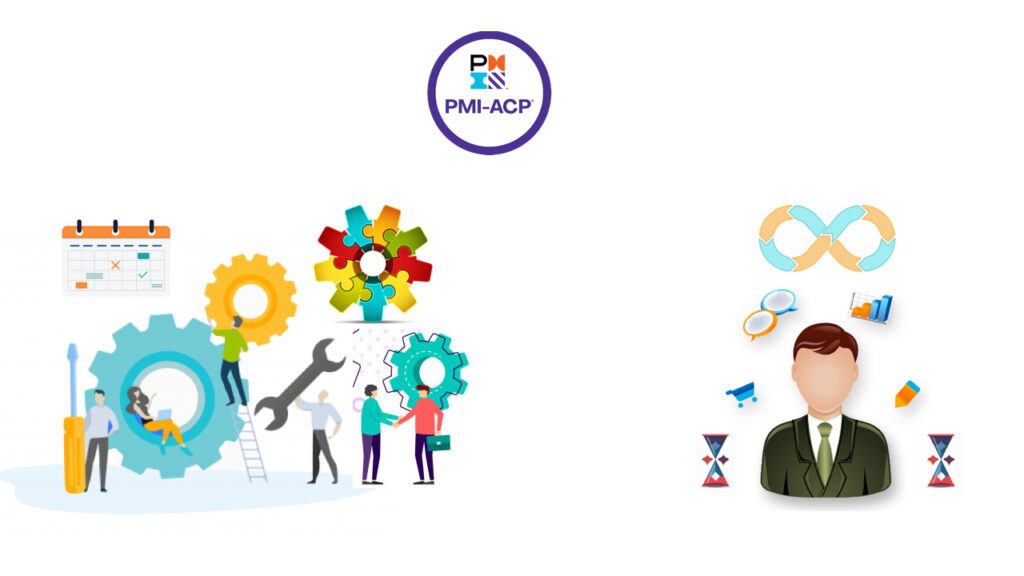
PMI ACP Practice Exam contains 20 Questions that will help you get a feel of what you might come across in the final PMI ACP certification exam offered by Project Management Institute (PMI). PMI-ACP focuses on the Agile project management principles and tests Agile practitioners’ knowledge of Agile project methodologies, Agile methodologies, the utilization of Agile tools and techniques, and the implementation of lean management for projects. PMI requires candidates to have working knowledge in a broad set of methodologies such as Scrum, Extreme Programming(XP), Kanban, Test-Driven Development(TDD), Crystal, Feature-Driven-Development(FDD), Dynamic Systems Development Method(DSDM), and Lean Product Development, etc. Our content is fully updated with the latest changes to the exam and Scrum Guide. Purchase Techagilist or Udemy Paid Membership to have unlimited access to a pool of 750 PMI-ACP Exam Questions with helpful explanations.
Key Features & Benefits of PSM Practice Exam Simulator
- High-quality questions: These simulated exams are designed to reflect the difficulty and complexity of the actual PMI-ACP certification exam.
- Realistic exam simulation: These simulated exams simulate the actual PMI-ACP certification exam as closely as possible.
- Detailed feedback and explanations: These simulated exams provide detailed feedback and explanations of why an option is correct or the remaining options are incorrect for each question.
- Instant results & instructor support: These simulated exams provide instant results after each exam. Instructors are available on a demand basis.
- Benefits of PMI-ACP Exam Simulator: Identifying knowledge gaps, Building confidence, Simulating real exam conditions, and Improving time management skills.
PMI-ACP Practice Exams by Domains
- Domain I. Agile Principles and Mindset (9 tasks) – 16% ~19 questions among 120 Exam questions
- Domain II. Value-Driven Delivery (4 sub-domains, 14 tasks) – 20% ~24 questions among 120 Exam questions
- Domain III. Stakeholder Engagement (3 sub-domains, 9 tasks) – 17% ~20 questions among 120 Exam questions
- Domain IV. Team Performance (3 sub-domains, 9 tasks) – 16% ~19 questions among 120 Exam questions
- Domain V. Adaptive Planning (3 sub-domains, 10 tasks) – 12% ~14 questions among 120 Exam questions
- Domain VI. Problem Detection and Resolution (5 tasks) – 10% ~12 questions among 120 Exam questions
- Domain VII. Continuous Improvement (Product, Process, People) (6 tasks) – 9% ~ 11 questions among 120 Exam questions
PMI ACP Practice Exam Real Mode
The purpose of this practice exam in Real Mode will allow you to test your knowledge before appearing for certification. Each time you will get a random set of 20 questions out of 50+ and the results will be displayed after you answer all questions.
REOPEN or REFRESH this page if you want to retrieve the next set of 20 QUESTIONS.
|
Number of Questions: 20
PSD Focus Areas
|
Purchase PMI-ACP Practice Exams (750 Questions – 1 set of 150 questions and 5 sets of 120 Questions) Click Here for UDEMY or TechAgilist Paid Membership.
Frequently Asked Questions
Here are a few frequently asked questions (FAQ) about the PMI-ACP exams to help you prepare for the certification process.
What is the PMI-ACP certification?
The PMI-ACP certification is a globally recognized credential offered by the Project Management Institute (PMI). It demonstrates an individual’s knowledge and experience in Agile methodologies, principles, and practices.
What are the eligibility requirements for the PMI-ACP certification?
Secondary degree. 21 contact hours of training in agile practices. 12 months of general project experience within the last 5 years. A current PMP® or PgMP® will satisfy this requirement but is not required to apply for the PMI-ACP. 8 months of agile project experience within the last 3 years.
What is the exam format for the PMI-ACP certification?
The PMI-ACP exam consists of 120 multiple-choice questions. Among these, 20 questions are considered pretest questions and are not scored. The remaining 100 questions are used to determine the final score. The exam duration is three hours.
What is the passing score for the PMI-ACP exam?
PMI does not disclose the passing score for the PMI-ACP exam. The certification is based on a combination of scoring algorithms that take into account the difficulty level of the questions.
How long is the PMI-ACP certification valid for?
The PMI-ACP certification is valid for three years. To maintain the certification, certified professionals must earn 30 Professional Development Units (PDUs) in Agile project management topics every three years.
What topics are covered in the PMI-ACP exam?
The PMI-ACP exam covers various Agile methodologies, including Scrum, Kanban, Lean, XP (Extreme Programming), and more. Topics include Agile principles and mindset, value-driven delivery, stakeholder engagement, team performance, adaptive planning, problem detection and resolution, and continuous improvement.
Can I apply for the PMI-ACP certification without Agile project experience?
No, Agile project experience is a requirement for the PMI-ACP certification. Candidates must have a minimum of 8 months of Agile project management experience obtained within the last three years, in addition to general project management experience.
What are the benefits of obtaining the PMI-ACP certification?
Obtaining the PMI-ACP certification demonstrates your expertise and proficiency in Agile practices, enhancing your professional credibility and marketability. It can open up new career opportunities, increase earning potential, and showcase your commitment to continuous improvement and Agile project management.
How can I prepare for the PMI-ACP certification exam?
- To prepare for the PMI-ACP exam, consider the following steps:
- Review the PMI-ACP Examination Content Outline provided by PMI.
- Study Agile methodologies, frameworks, and practices.
- Attend Agile training courses and workshops.
- Utilize study materials and practice exams.
- Engage in self-study and hands-on application of Agile principles in real-world projects.
Recommended Reading
- Scrum.org
- PSM I – PSM Practice Exam Practice Mode Questions
- PSM II – PSM II Practice Exam Practice Mode Questions
- PSPO I – PSPO Practice Exam Real Mode Questions
- PSPO I – PSPO Practice Exam Practice Mode Questions
- PSPO II – PSPO II Practice Exam Practice Mode Questions
- PSD – PSD Practice Exam Practice Mode Questions
- SPS – SPS Practice Exam Practice Mode Questions
- Scrum Alliance
- PMI
Disclaimer: “PMP”, “PMBOK”, “PMI-ACP” and “PMI” are registered trademarks of the Project Management Institute, Inc.

